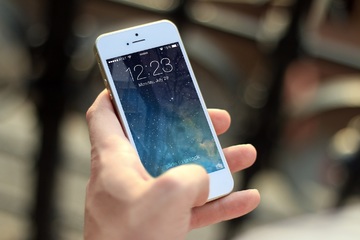The topic of cybersecurity is becoming an increasingly important topic. Cybersecurity is defined as a body of technologies, processes, and practices designed to protect networks, computers, programs and data from online attacks, damage or unauthorized access.
In May 2016, the controversial battle between Apple to protect the San Bernardino shooter’s user privacy versus the U.S. Federal Bureau of Investigation’s power to access information for national security reasons hit headlines. The FBI obtained the information, but the ongoing challenges between technology firms and law enforcement officials over data privacy remain.
As October is National Cyber Security Awareness Month, here are 3 ways to protect your smartphones and any of your electronic devices from hacks.
- Update your system Make sure your smartphone and computer has the latest software updates installed. It’s important to keep track of these updates because it often protects your phone and laptop from outside intruders. Although new updates may seem bothersome, don’t let laziness get the best of you, and therefore impact your device. Once your device is hacked, it’s far more costly to repair. Block hackers from accessing your personal information and other important details you don’t want others to see by updating your system frequently.
- Keep a password & tracking system “I’ve never lost my phone, or got it stolen. I don’t need a tracking system or password because I’m very meticulous about my personal items.” While this may be true, it’s impossible to assume these scenarios will never happen in your lifetime. Have a password on your phone to prevent people from hacking your phone. It’s recommended to a tracking system installed for emergency situations. You can also purchase Tile Mate, a small square bluetooth device that can be connected to your smartphones, keys, bags, and other items to track them down and locate them when lost.
- Be aware of free wifi Free wifi sounds like a good deal because you don’t have to pay for Internet usage. However, be aware of the word “complimentary” as this doesn’t ensure protection of your personal information from outside hackers. When you’re utilizing free wifi, refrain from checking important details regarding your bank account and passport information. Don’t be an easy target for hackers by openly sharing your personal information. Save your information and keep it private, making it difficult for hackers to access.
- Be wary when traveling If you’re traveling abroad, be especially careful with your phone. The new iPhone 8 or Samsung Galaxy S8 you adore can get pick-pocketed walking or riding public transportation. If your phone gets stolen or lost, try tracking it down through the find-my-phone feature available to both iPhone and Android. You can also try calling your carrier. The carrier can disable phone and data services and help you moving forward.
Cybersecurity is a serious issue that threatens personal data as well as national security. Implement these steps to protect yourself from outsiders hacking into your system.
Sharon Schweitzer and Sunny Kim co-wrote this post. Sharon Schweitzer, J.D., is an award-winning entrepreneur, cross-cultural trainer, and the founder of Access to Culture. In addition to her accreditation in intercultural management from the HOFSTEDE Centre, she serves as a Chinese Ceremonial Dining Etiquette Specialist in the documentary series Confucius was a Foodie, on Nat Geo People. She is regularly quoted by BBC Capital, Investor’s Business Daily, and Fortune. Her Amazon #1 Best Selling book in International Business, Access to Asia: Your Multicultural Business Guide, (3rd printing), was named to Kirkus Reviews’ Best Books of 2015. She’s a winner of the British Airways International Trade Award at the 2016 Greater Austin Business Awards.
Sunny Kim is a Fall 2017 Cross-Cultural Communication intern with Access to Culture. She is currently a junior journalism student at the University of Texas at Austin with a minor in Korean language and certificate in business. She is also the founder and president of UT Asian American Journalists Association. Her main focus is storytelling people’s diverse experiences relating to race and culture. Connect with her on Linkedin.
Photo credit Pxhere


Leave A Comment